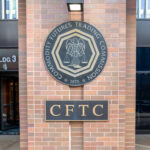ProphetX seeks CFTC approval for sports prediction market

Peer-to-peer betting exchange platform ProphetX has applied to the Commodity Futures Trading Commission for registration as both a designated contract market and a derivatives clearing organization.
If approved, ProphetX would be the first regulated US exchange and clearinghouse designed specifically for sports-based event contracts. The dual filing aims to allow users to trade, clear, and settle sports outcome-based contracts under Commodity Futures Trading Commission oversight.
ProphetX’s application includes its proprietary request for quote parlay mechanism, which lets users construct and price multi-event combinations directly with counterparties. The firm said the system mirrors institutional trading protocols in traditional finance.
ProphetX Chief Executive and Co-Founder Dean Sisun said, “Our goal has always been to build a transparent, compliant and innovative marketplace that treats sports outcomes with the same integrity and structure as any other asset class. Filing for DCM and DCO status is the next logical step in legitimizing the future of user-driven sports trading.”
Co-Founder and Chief Marketing Officer Jake Benzaquen added, “The RFQ Parlay Mechanism is a fundamental innovation. It allows for dynamic price discovery and efficient multi-leg exposure – features that have long existed in traditional markets but are entirely new to the sports derivatives domain.”
The New York-based company expects its regulatory review to continue through 2026, as it works with the regulator to ensure compliance with market integrity and customer protection standards.
This comes after Donald Trump nominated lawyer and crypto adviser Michael Selig to chair the Commodity Futures Trading Commission.
Abi Bray brings strong researching skills to the forefront of all of her writing, whether it’s the newest slots, industry trends or the ever changing legislation across the U.S, Asia and Australia, she maintains a keen eye for detail and a passion for reporting.
Verticals:
Sectors:
Topics:
Dig Deeper
The Backstory
Why this filing matters now
ProphetX’s bid to become both a designated contract market and a derivatives clearing organization lands at a pivotal moment for event-based trading in the United States. The Commodity Futures Trading Commission is testing how, and whether, prediction markets fit within its statutory mandate as more retail users and mainstream investors gravitate toward contracts tied to elections, sports and current events. That emerging demand, coupled with legal and political pressure on the agency, has turned market structure into the story. Whether the CFTC sets a single, regulated pathway for these products or continues case-by-case approvals will shape where capital flows, how platforms compete and how states interpret the line between federally regulated derivatives and prohibited gambling.
ProphetX’s dual application underscores a strategic bet: that formal exchange and clearinghouse supervision, plus institutional-grade trading features, can answer regulators’ concerns about customer protections and market integrity. The agency’s recent actions suggest both opportunity and risk for that approach. Other operators have advanced through alternative channels, triggering new scrutiny and litigation. A clean, on-the-record registration could offer clarity, but it will play out against unsettled legal terrain and a shifting leadership slate at the CFTC.
A no-action detour reshapes the field
The CFTC jolted the landscape in early September when it allowed Polymarket to return to the U.S. via a no-action letter following the company’s $112 million purchase of a registered exchange and clearinghouse. That green light, documented in our coverage of Polymarket’s U.S. launch approval, gave the platform a compliant operating route without a fresh, full-blown rulemaking on prediction markets. It also validated a tactic some call “rent or buy” — acquiring existing licenses to inherit regulatory status — that can dramatically accelerate time to market.
The decision drew swift reactions across finance and politics. Proponents argued that orderly, transparent markets can improve price discovery around public events and broaden risk management tools. Skeptics countered that the approach sidestepped a holistic framework and muddied the distinction between derivatives and gambling. For new entrants like ProphetX, the Polymarket precedent cuts both ways. It shows the CFTC will permit event contracts under certain structures, but it also spotlights the scrutiny attached to those approvals and the need to demonstrate robust safeguards that look more like traditional futures than retail gaming.
Mounting warnings from inside the CFTC
One of the agency’s own former leaders has cautioned that open doors can carry hidden risks. In a farewell address at Brookings, former Commissioner Kristin Johnson said retail money pouring into prediction products and some crypto venues outpaces existing guardrails. She argued that consumer protections, leverage limits and sound custody rules must precede scale, not follow it. Her critique — and her specific concern about license transfers — was detailed in our report on Johnson’s prediction market warning.
Johnson’s remarks framed a clear regulatory fork. One path treats event contracts as financial instruments subject to the full discipline of exchange surveillance, clearing risk management and compliance examinations. The other tolerates ad hoc entry points that may be lawful but leave uneven protections for retail participants and inconsistent standards among providers. ProphetX’s choice to seek both market and clearing registrations positions it on the former path, but the timing means its application will be assessed through the lens of the CFTC’s recent no-action moves and the agency’s appetite to tighten the policy perimeter.
States push back on the federal pathway
Even as the CFTC has carved routes for prediction markets, state regulators are asserting jurisdiction where they see gambling by another name. Arizona’s top gaming official blasted the federal agency’s handling of event contracts, arguing there is little daylight between purchasing a contract on a sports result and placing a sportsbook wager. The critique, including references to cease-and-desist notices against several platforms, is captured in our piece on the Arizona gaming director’s rebuke.
The state-federal tension is consequential for market design. If multiple states deem prediction markets illegal gambling, nationally supervised venues face a patchwork of restrictions that can fracture liquidity and raise compliance costs. That dynamic could favor platforms that can tightly geofence, calibrate product design to meet state prohibitions or convince courts that CFTC oversight preempts certain state rules. For a would-be exchange like ProphetX, demonstrating legal separability from sports betting — through contract structure, margining, reporting and customer controls — will be as important as clearing architecture and surveillance tech.
Licensing fights spill into court
The licensing pathway itself is under legal challenge. Fantasy operator Sleeper Markets sued the CFTC and Acting Chair Caroline Pham, alleging unlawful interference with its application for a futures commission merchant license. The company says the National Futures Association deemed its filing complete but that the CFTC instructed the NFA not to approve it, while a rival won clearance during the same period. The dispute, outlined in our coverage of Sleeper Markets’ lawsuit, accuses the regulator of arbitrary treatment that advantages competitors.
However the court rules, the case underscores the stakes attached to gatekeeping in a fast-moving category. A perception that approvals hinge on opaque discretion, rather than transparent criteria, invites more litigation and chills investment. Conversely, a clear, replicable route creates incentives for firms to shoulder the cost of full compliance. ProphetX’s DCM and DCO bid will test whether the agency wants to formalize such a route for sports-linked event contracts or continue to rely on transactional approvals and acquisitions.
The chair who could set the rules
Leadership will matter. President Donald Trump has nominated Michael Selig, a crypto-focused lawyer and SEC adviser, to chair the CFTC. If confirmed, Selig would inherit the prediction market debate alongside the agency’s broader role in digital assets. His nomination, reported in our story on Trump’s pick to lead the CFTC, signals a tilt toward modernization and competitive positioning for U.S. markets.
A Selig-led CFTC could seek to harmonize the patchwork: codifying standards for event contracts, clarifying the status of acquisitions that convey trading permissions and setting baseline consumer protections. That would give applicants like ProphetX a firmer blueprint for approval and operations. It could also draw sharper lines with state gaming authorities, prompting new preemption fights or negotiated accommodations. Until then, the agency’s case-by-case posture leaves platforms threading a needle between innovation and compliance risk.
Against that backdrop, ProphetX’s filing reads as both a market bet and a regulatory wager. The company is arguing that event contracts can live inside the existing futures framework with institutional-grade controls. The outcome will hinge on whether the CFTC, states and courts coalesce around a unified definition of what these markets are — and are not — and whether the next chair wants to write rules that last beyond the next news cycle.








